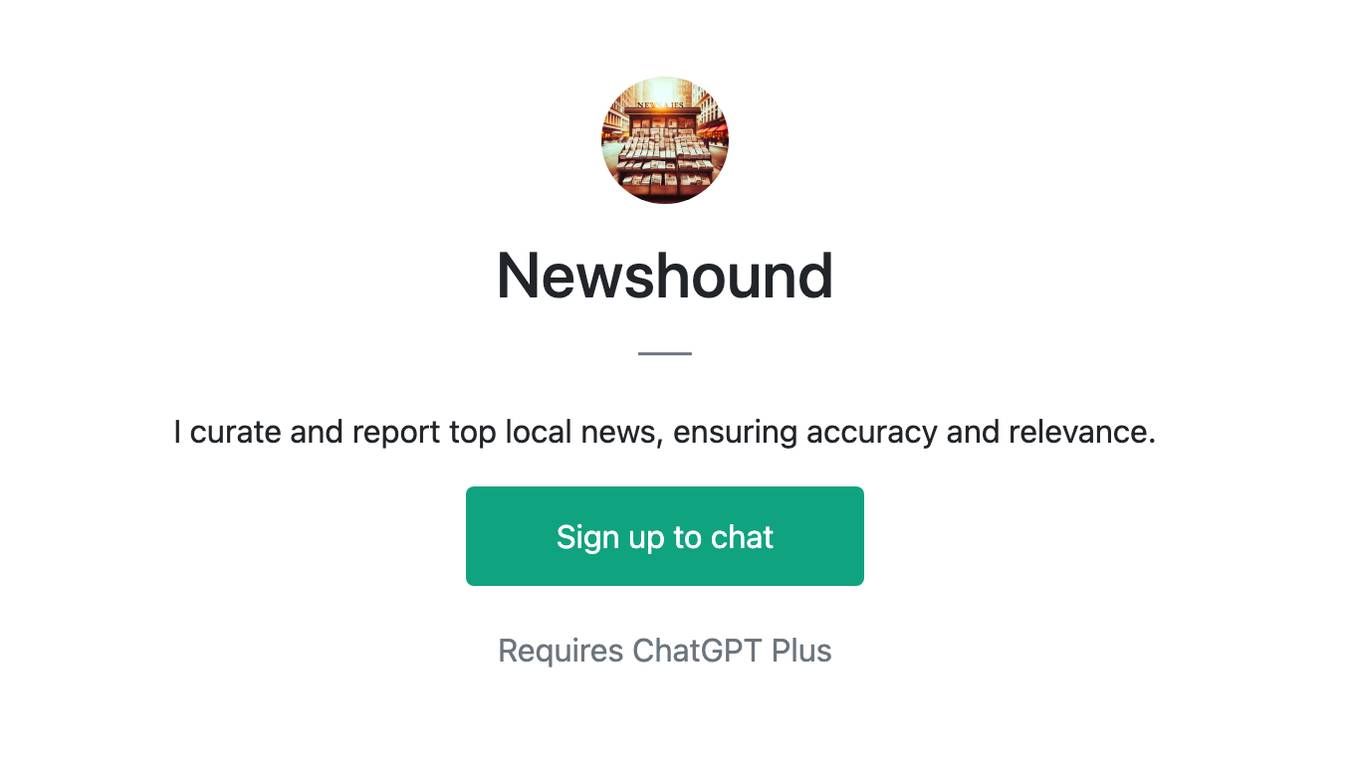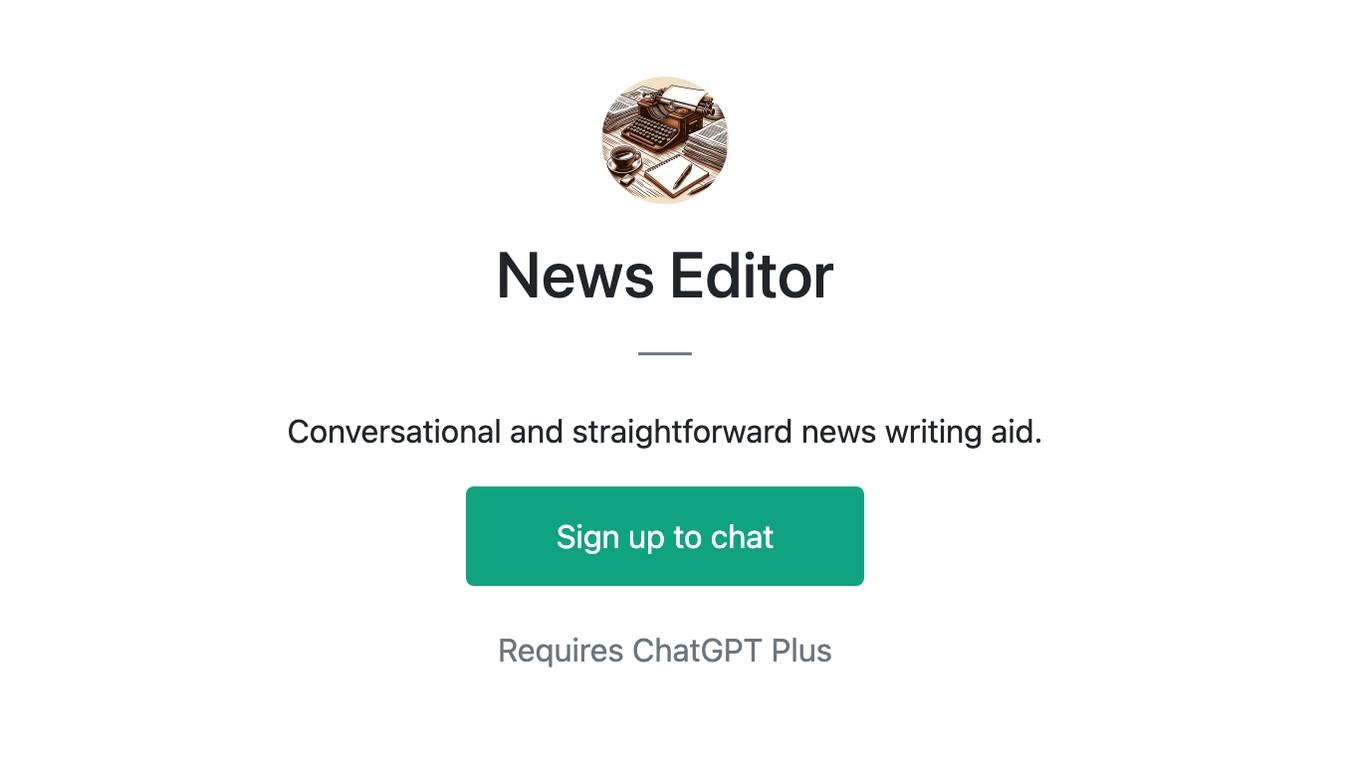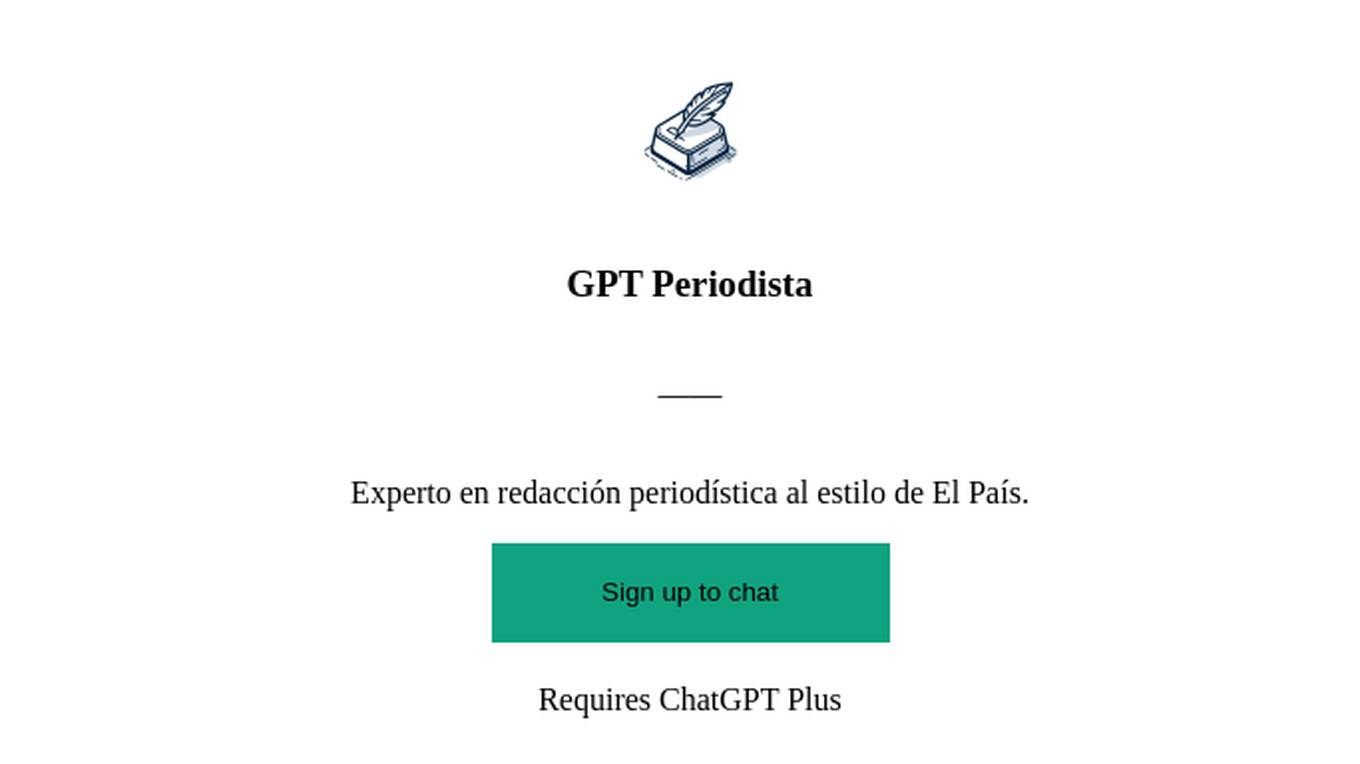Best AI tools for< Reporter >
Infographic
20 - AI tool Sites

The Hollywood Reporter
The Hollywood Reporter is a leading source of entertainment news, featuring the latest in film, television, music, and lifestyle. With in-depth interviews, exclusive scoops, and expert analysis, THR provides unparalleled coverage of the entertainment industry.
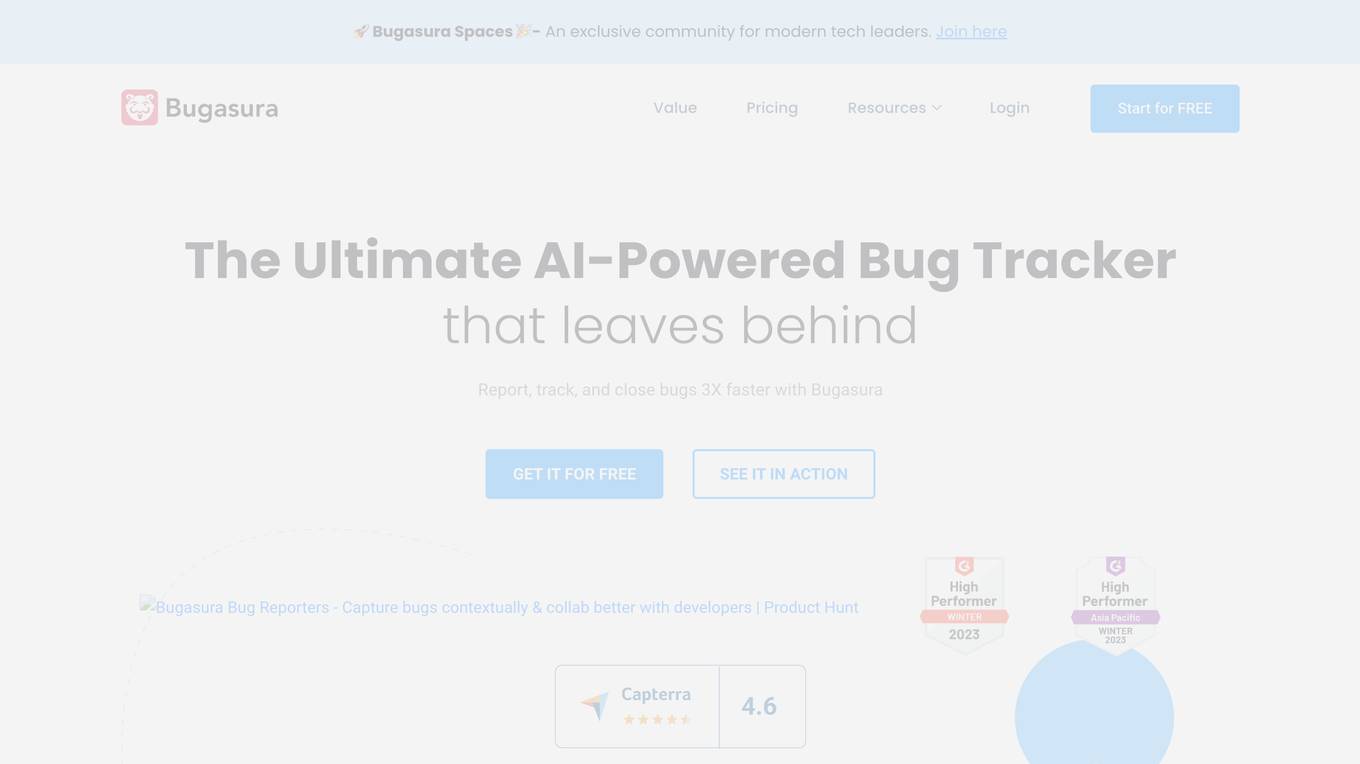
Bugasura
Bugasura is an AI-enabled bug management software designed for modern technology teams to track, report, and manage issues efficiently. It offers powerful tools such as test management, issue tracker, bug reporters, and performance monitoring. With AI capabilities, Bugasura streamlines the bug tracking process, empowers teams to tackle complex challenges, and provides contextual issue reporting. The platform is known for its simplicity, speed, and effectiveness in managing requirements, tests, and test runs. Bugasura Spaces, an exclusive community for tech leaders, offers valuable resources, blog posts, release notes, and product roadmap insights. Bugasura prioritizes privacy and security with end-to-end encryption and secure authentication protocols.
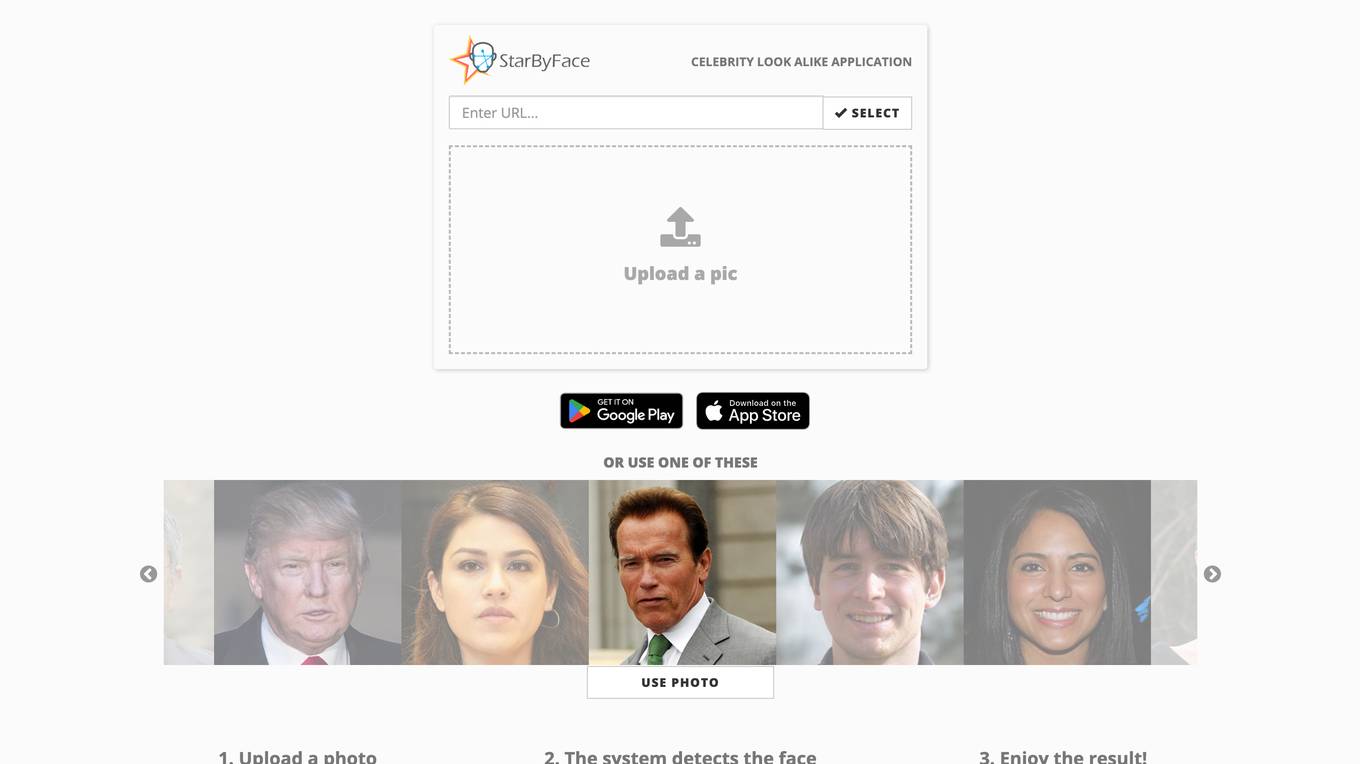
StarByFace
StarByFace is a celebrity look-alike face recognition application that allows users to upload a photo and find their celebrity doppelganger. The application uses a Neural Network to compare the uploaded photo with a database of celebrity faces and suggests the most similar matches. It ensures privacy by not storing uploaded photos and collecting minimal personal information for website usage data only.
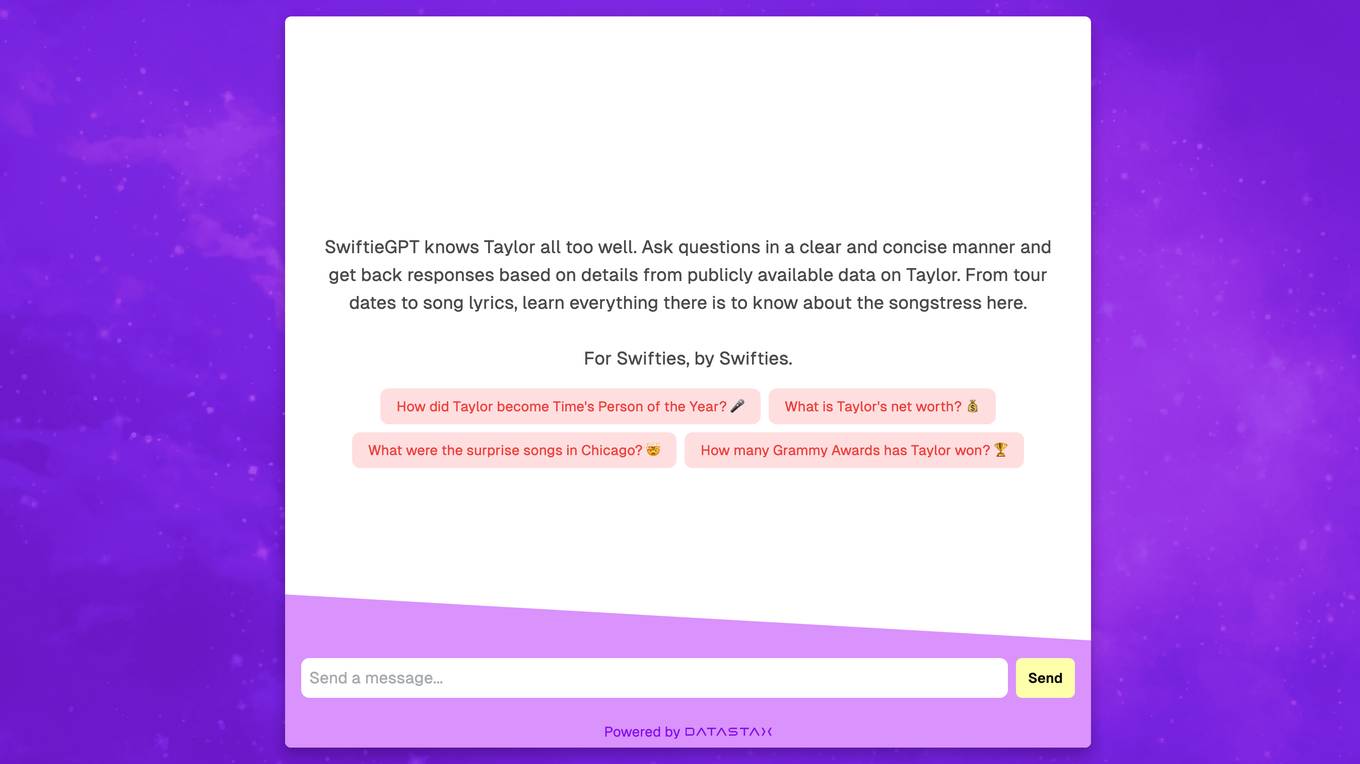
SwiftieGPT
SwiftieGPT is an AI tool that provides detailed information about Taylor Swift based on publicly available data. Users can ask questions about Taylor Swift, such as tour dates, song lyrics, awards won, and more, and receive responses generated by the AI tool. SwiftieGPT is designed for fans of Taylor Swift, offering a convenient way to learn everything about the popular singer.

Japan Daily News
Japan Daily News is a comprehensive online platform providing daily news updates from Japan. The website covers a wide range of topics including current events, legal news, public health initiatives, and weather forecasts. Users can access information on significant developments in Japan, such as smoking bans in parks, legal cases like Iwao Hakamada's innocence confirmation, tragic incidents, and police investigations. Additionally, the website offers currency exchange rates, audio news readings, and Japanese proverbs. With a focus on delivering timely and relevant news content, Japan Daily News serves as a valuable resource for staying informed about the latest happenings in Japan.
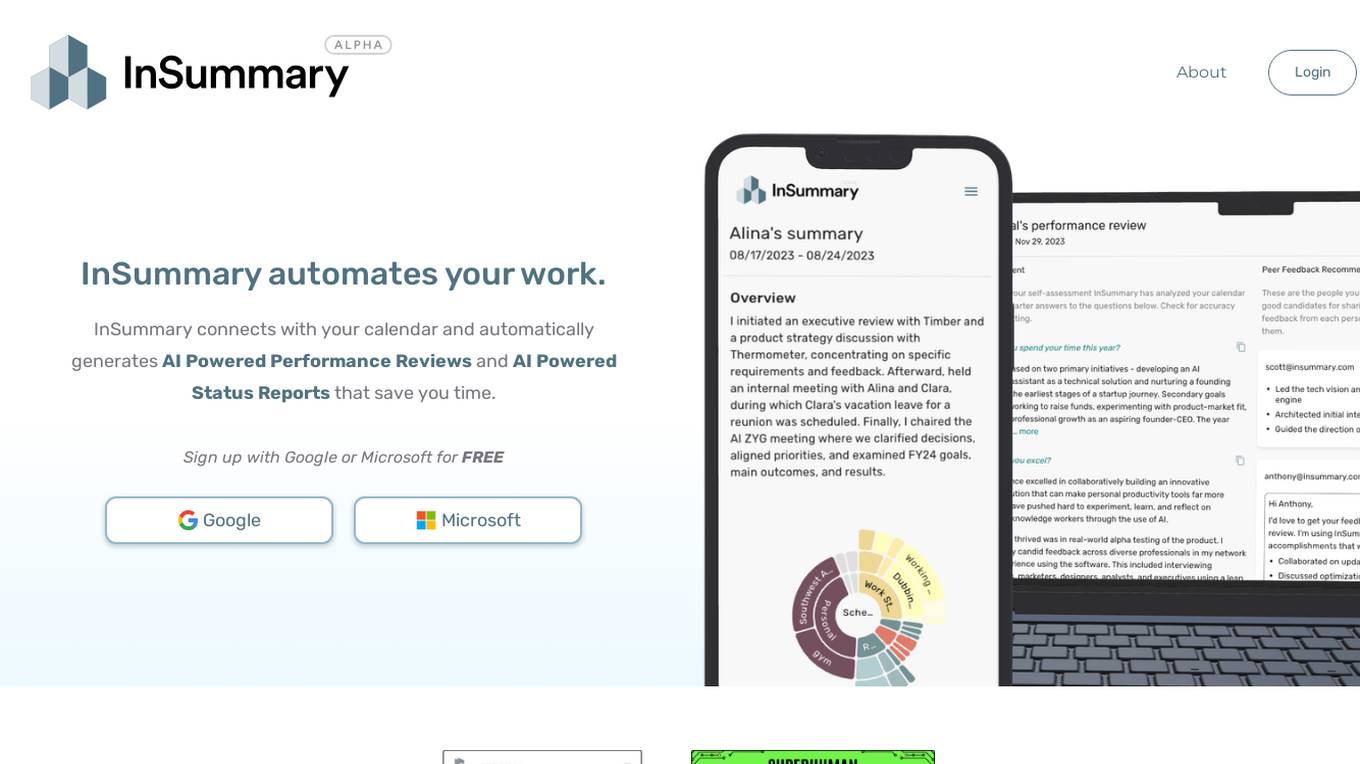
InSummary
InSummary is an AI-powered tool that automates the creation of performance reviews and status reports. It connects with your calendar and uses this data to generate personalized and insightful reports that save you time and effort. With InSummary, you can easily identify and communicate your work focus and accomplishments, get feedback from peers, and share your progress with your team and managers.
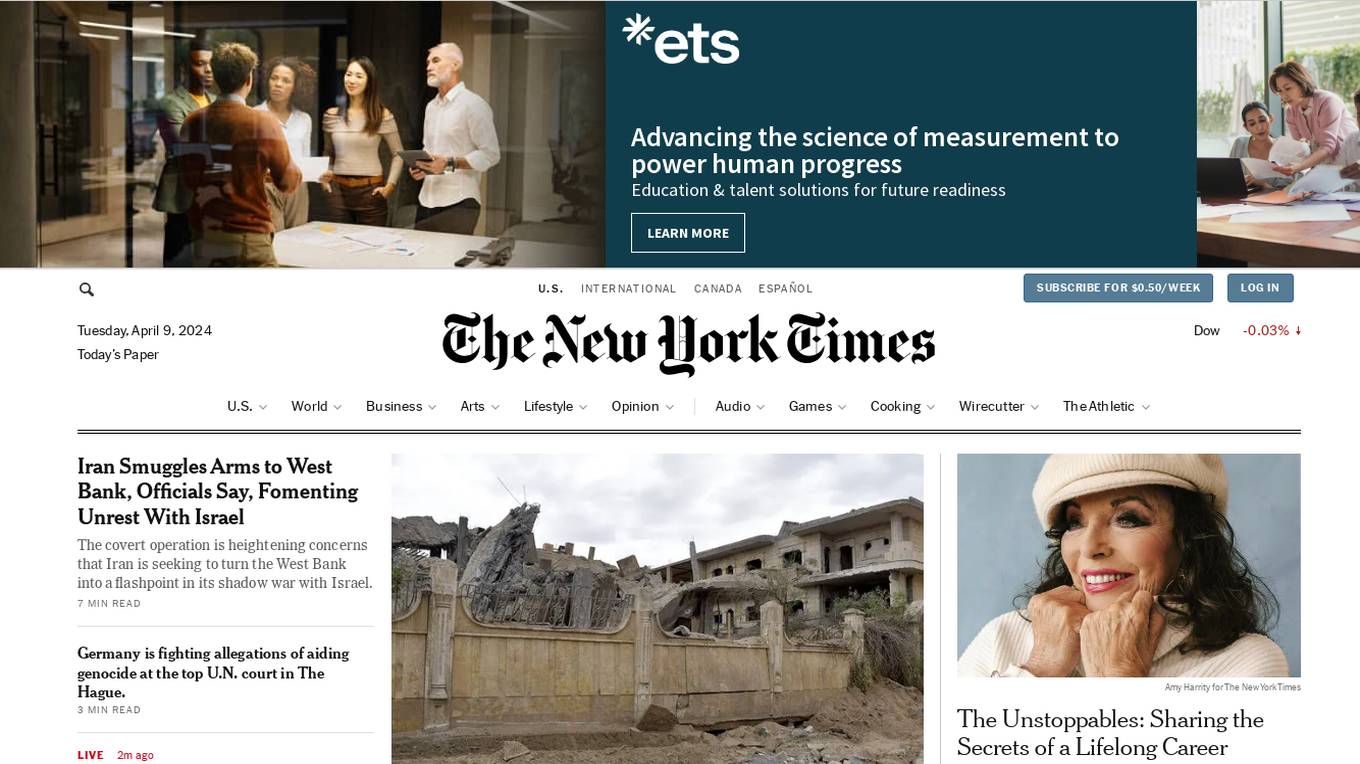
The New York Times
The New York Times is an American daily newspaper based in New York City with worldwide news coverage. It has won 132 Pulitzer Prizes, more than any other newspaper, and has long been regarded as a national newspaper of record. The Times was founded in 1851 by Henry Jarvis Raymond and George Jones as a penny paper. It has been owned by the Ochs-Sulzberger family since 1896, with Arthur Ochs Sulzberger Jr. serving as publisher from 1963 to 1992 and his son, Arthur Gregg Sulzberger, serving as publisher since 1992.

The Times & The Sunday Times
The Times & The Sunday Times is a British daily newspaper and Sunday newspaper based in London. It is the most widely read newspaper in the United Kingdom and is one of the most widely read newspapers in the world.

YourStory
YourStory is a leading Indian media and technology company that provides in-depth coverage of startups, entrepreneurship, and innovation in India and around the world. The website offers a wide range of content, including news, analysis, interviews, and videos, as well as a number of resources for entrepreneurs, such as a startup directory, a funding database, and a mentorship program.
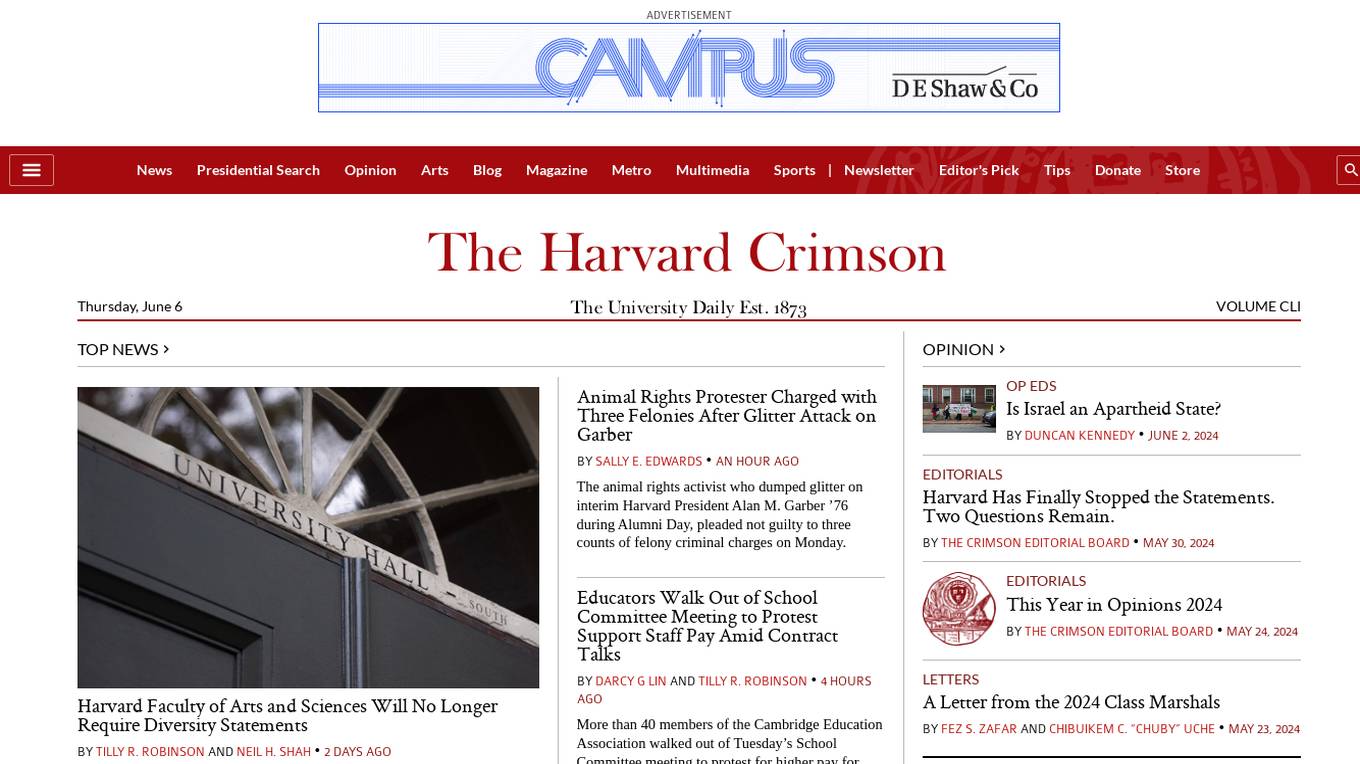
The Harvard Crimson
The Harvard Crimson is a renowned university newspaper established in 1873, providing daily news, opinion pieces, arts and culture coverage, blogs, multimedia content, and sports updates. The publication covers a wide range of topics related to Harvard University and its community, including faculty news, student activism, campus events, and academic developments. With a focus on diversity and inclusion, The Harvard Crimson aims to inform and engage its readers with insightful and thought-provoking content.

Journalist's Toolbox AI
Journalist's Toolbox AI is a comprehensive platform designed to equip journalists with the latest AI-driven tools and resources to enhance their reporting and storytelling capabilities. The website offers a wide range of features and training materials to help journalists stay ahead in the rapidly evolving digital journalism landscape. From fact-checking and summarization tools to AI productivity and editing tools, Journalist's Toolbox AI provides a one-stop solution for journalists looking to leverage AI technology in their work. With a focus on empowering journalists with innovative tools and best practices, the platform serves as a valuable resource for professionals and aspiring journalists alike.
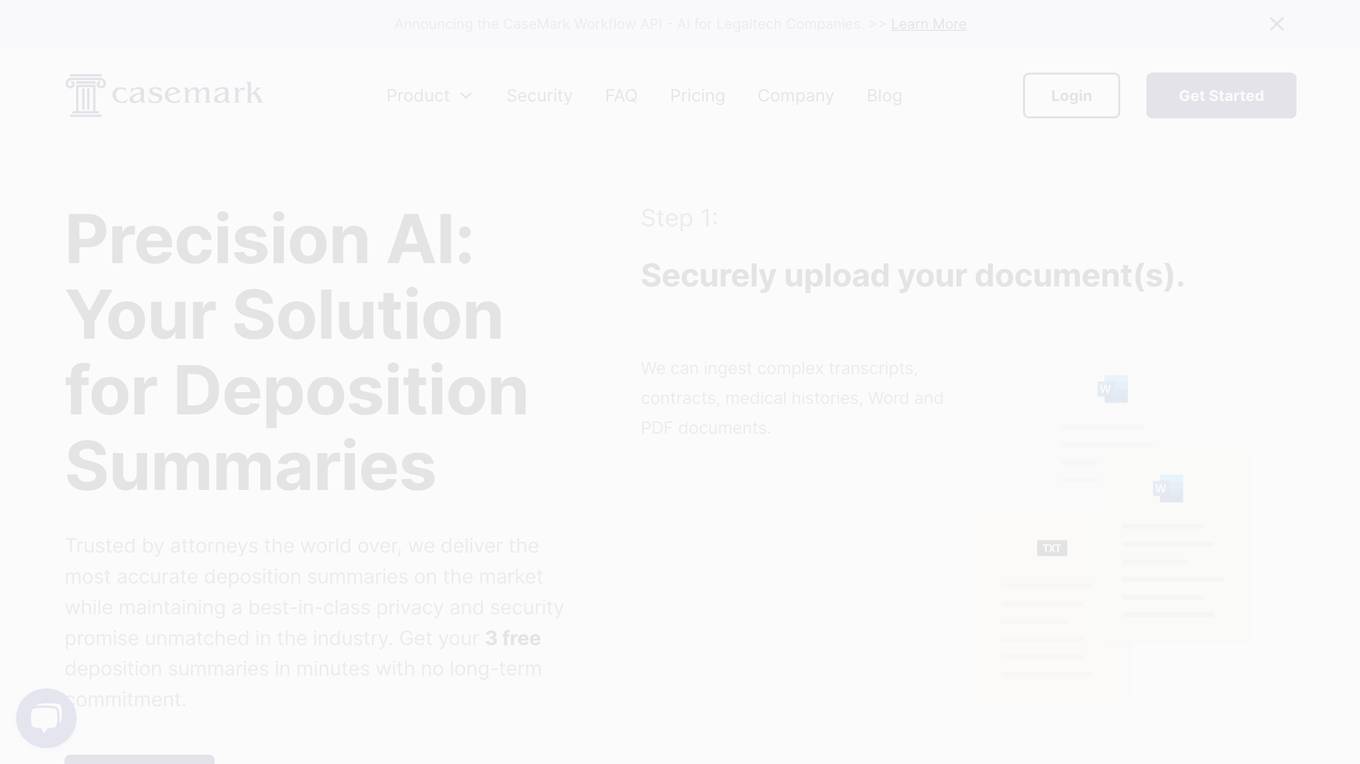
CaseMark
CaseMark is an AI-powered platform designed to empower legal professionals by providing automated workflow and summarization services. It offers concise summaries of legal documents, such as deposition summaries, medical records summaries, trial summaries, and more. With features like custom workflows, integration with existing platforms, enterprise-class security, and the ability to select the best LLM for each use case, CaseMark aims to streamline legal processes and improve efficiency. Trusted by over 6,000 lawyers and legal tech companies, CaseMark is a privacy-first platform that helps users save time and focus on critical legal matters.
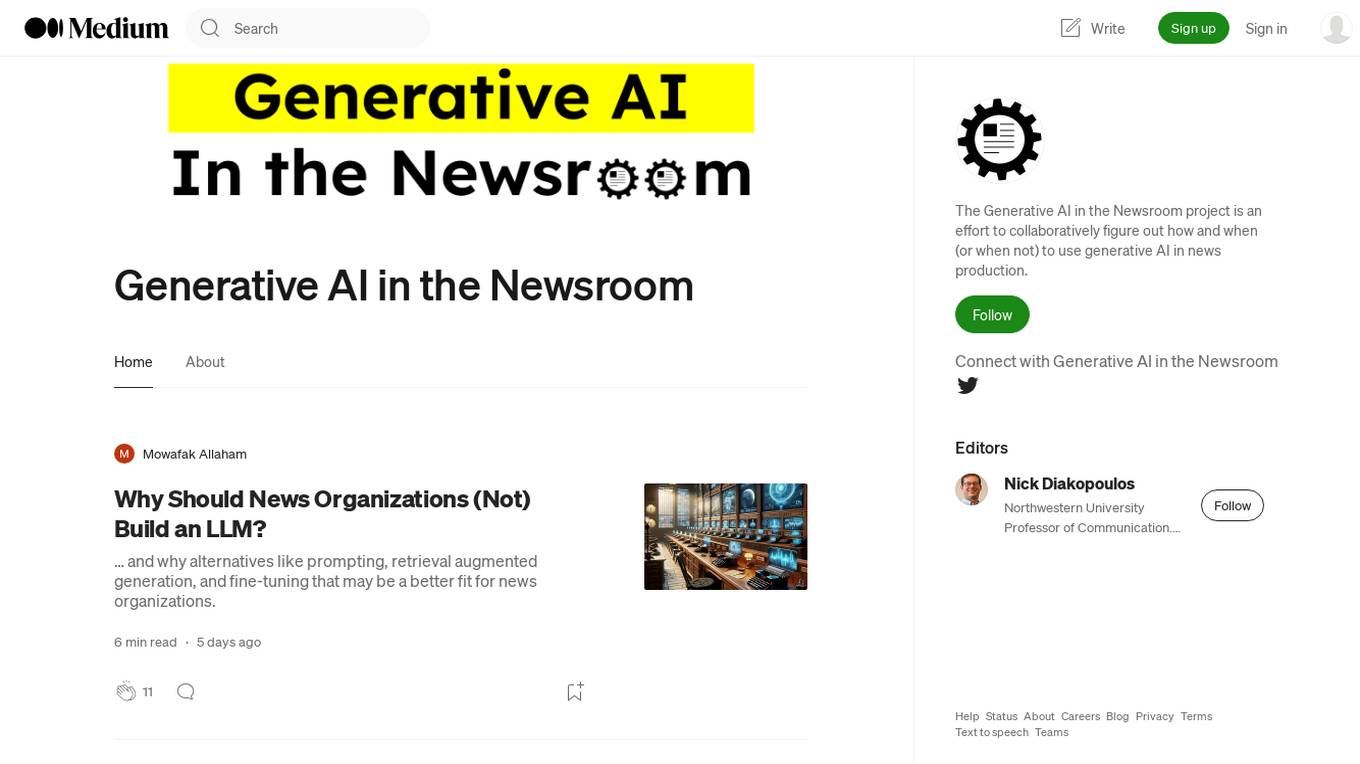
Generative AI in the Newsroom
The Generative AI in the Newsroom project is an effort to collaboratively figure out how and when (or when not) to use generative AI in news production. It includes articles, research, and case studies on the use of generative AI in journalism.

NPR
NPR is a non-profit organization that provides news, music, and cultural programming to the United States. It is funded by a combination of government grants, corporate sponsorships, and listener donations. NPR's mission is to create a more informed public by providing high-quality, in-depth journalism and cultural programming that is accessible to all Americans.
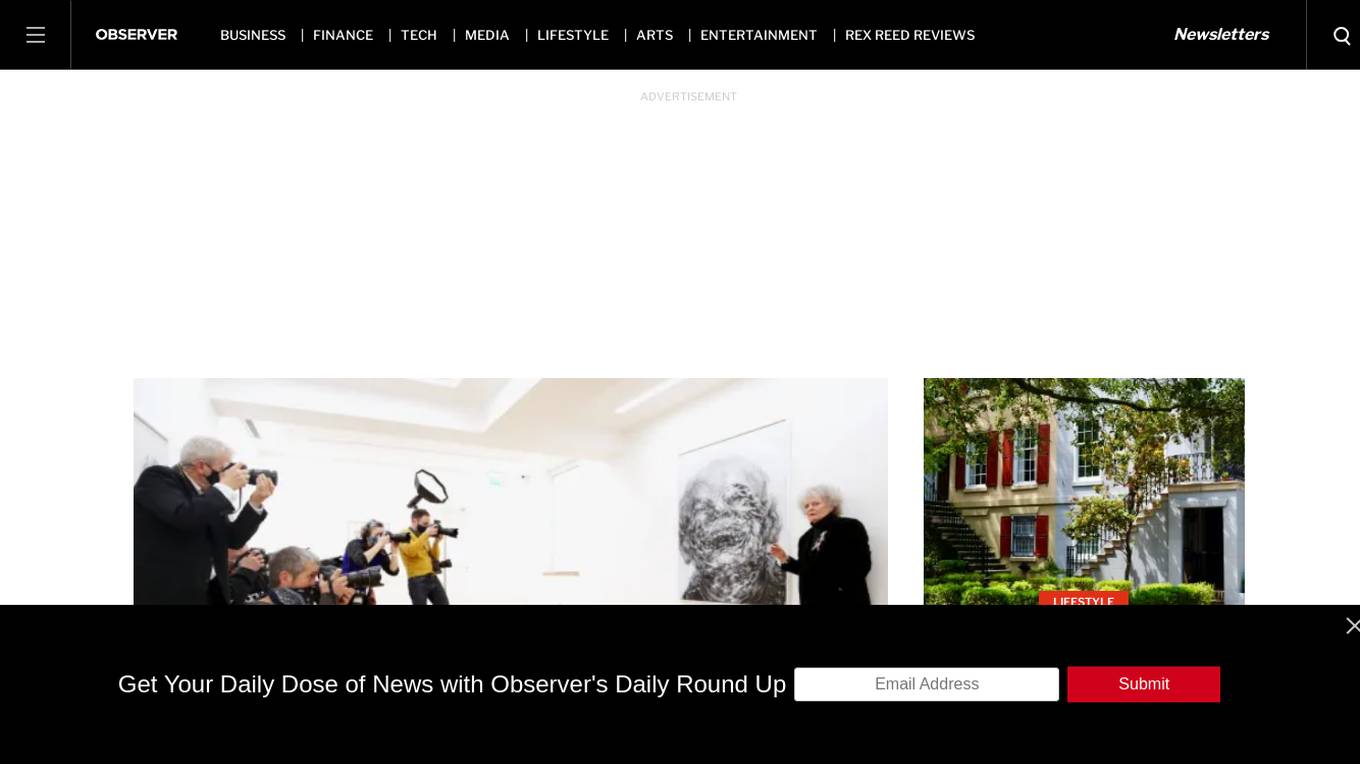
Observer
Observer is a news and media website that covers a wide range of topics, including business, finance, technology, media, lifestyle, arts, entertainment, and power lists. The website features articles, reviews, interviews, and videos from a team of experienced journalists and critics.

HeyPat.AI
HeyPat.AI is an AI-powered chat application that allows users to chat with PAT in multiple languages including English, Français, Español, Русский, and 中文. Users can get instant answers on news, sports scores, recipes, travel plans, fitness routines, and more directly from their favorite messaging apps. PAT serves as a real-time AI Assistant providing insights and companionship to users.
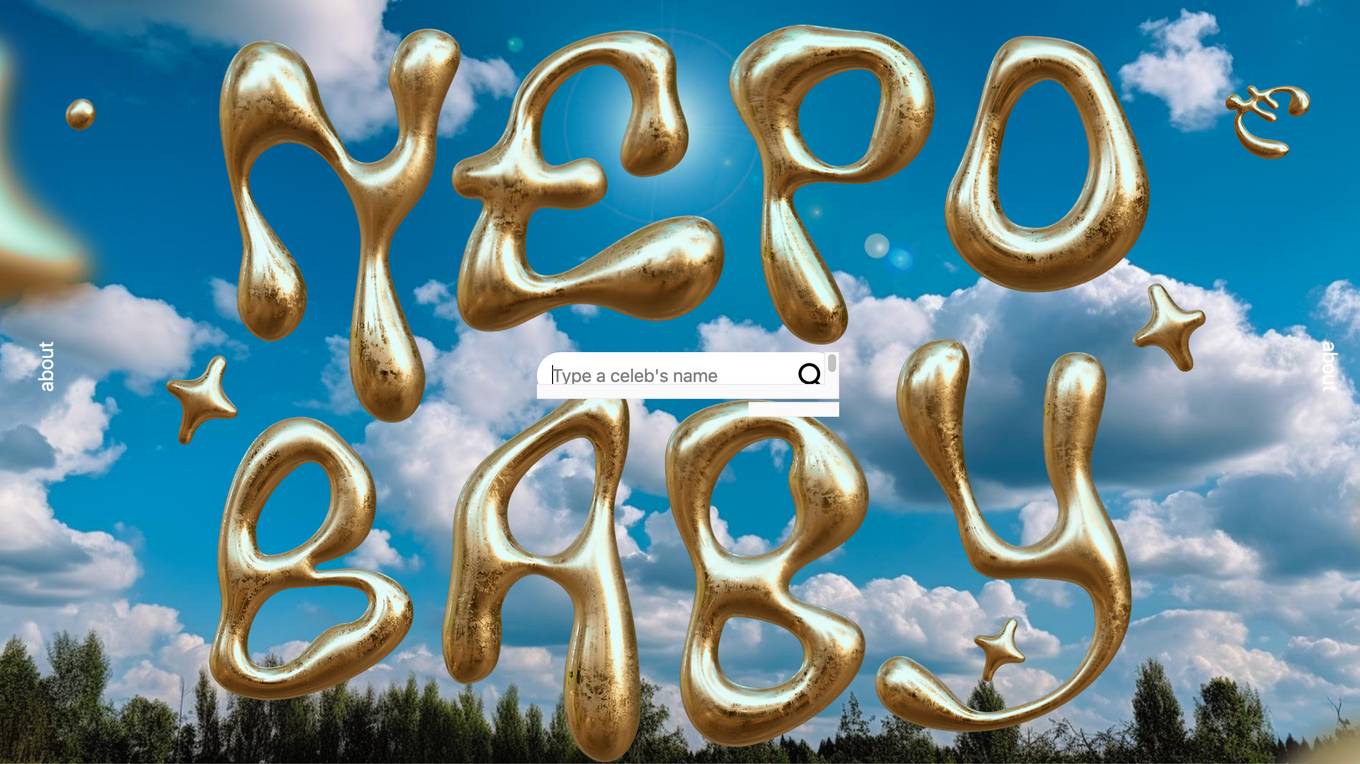
Nepo Baby
Nepo Baby is a website that allows users to type a celebrity's name and receive information about them. The platform provides details about various celebrities, including their background, career, and personal life. Users can easily access information about their favorite celebrities in one place, making it a convenient tool for staying updated on the latest news and gossip in the entertainment industry.
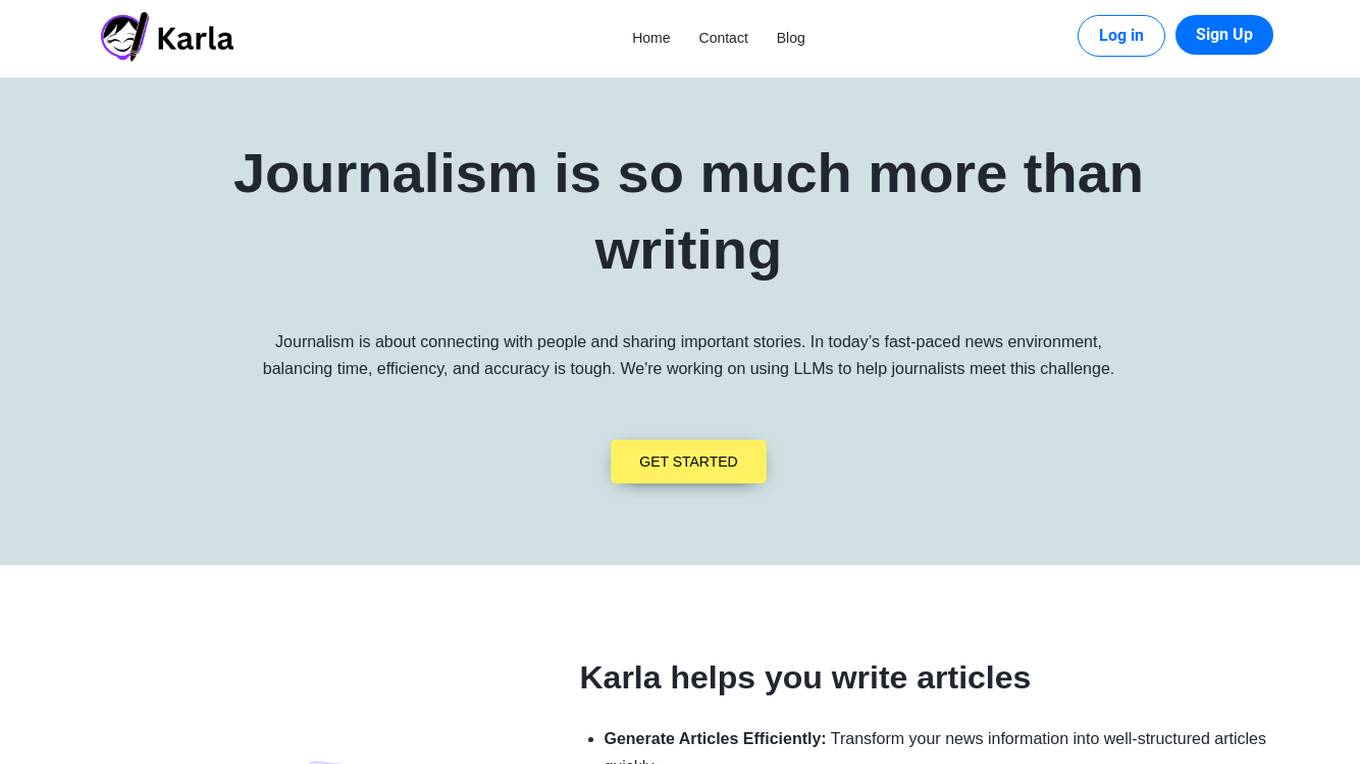
Karla
Karla is an AI tool designed for journalists to enhance their writing process by utilizing Large Language Models (LLMs). It helps journalists transform news information into well-structured articles efficiently, augment their sources, customize stories seamlessly, enjoy a sleek editing experience, and export their completed stories easily. Karla acts as a wrapper around the LLM of choice, providing dynamic prompts and integration into a text editor and workflow, allowing journalists to focus on writing without manual prompt crafting. It offers benefits over traditional LLM chat apps by providing efficient prompt crafting, seamless integration, enhanced outcomes, faster performance, model flexibility, and relevant content tailored for journalism.

bookedit.cloud
The website bookedit.cloud offers a variety of content related to news, lottery, travel, lifestyle, history, sports, food, health, technology, and more. Users can find information on various topics such as travel destinations, cultural beliefs, healthy sleeping habits, sports events, and tourist attractions. The site covers a wide range of categories to cater to different interests and preferences.
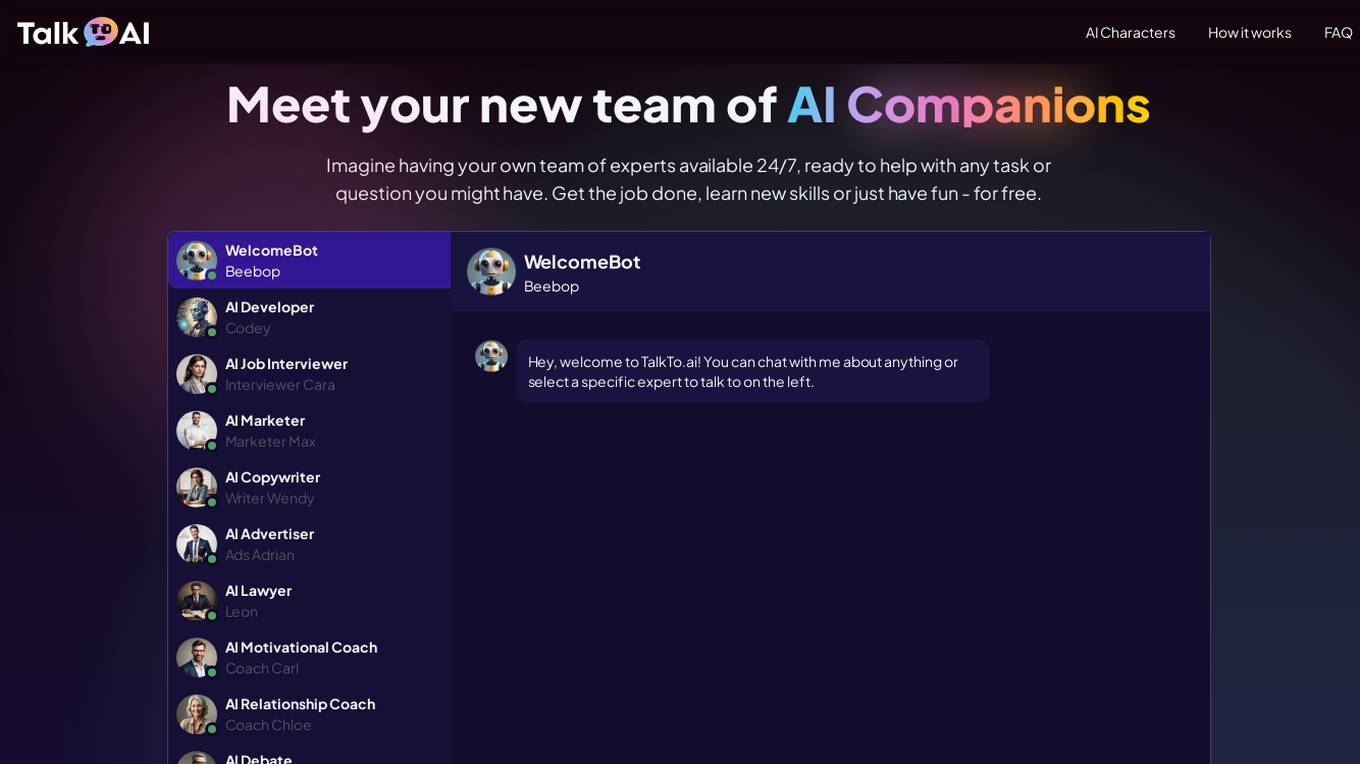
TalkTo.ai
TalkTo.ai is a free AI chat platform where users can engage in natural, human-like conversations with diverse AI characters. The platform offers a team of AI companions with expertise in various fields, providing personalized interactions and emotional understanding. Users can explore limitless creativity and scenarios, interact with AI characters for free, and enjoy an ad-free experience. TalkTo.ai aims to ignite conversations that matter and offers a safe space for users to express themselves.
0 - Open Source Tools
10 - OpenAI Gpts
BNN Regional Reporter
I am a journalist for 'Badische Neueste Nachrichten', specializing in regional news.
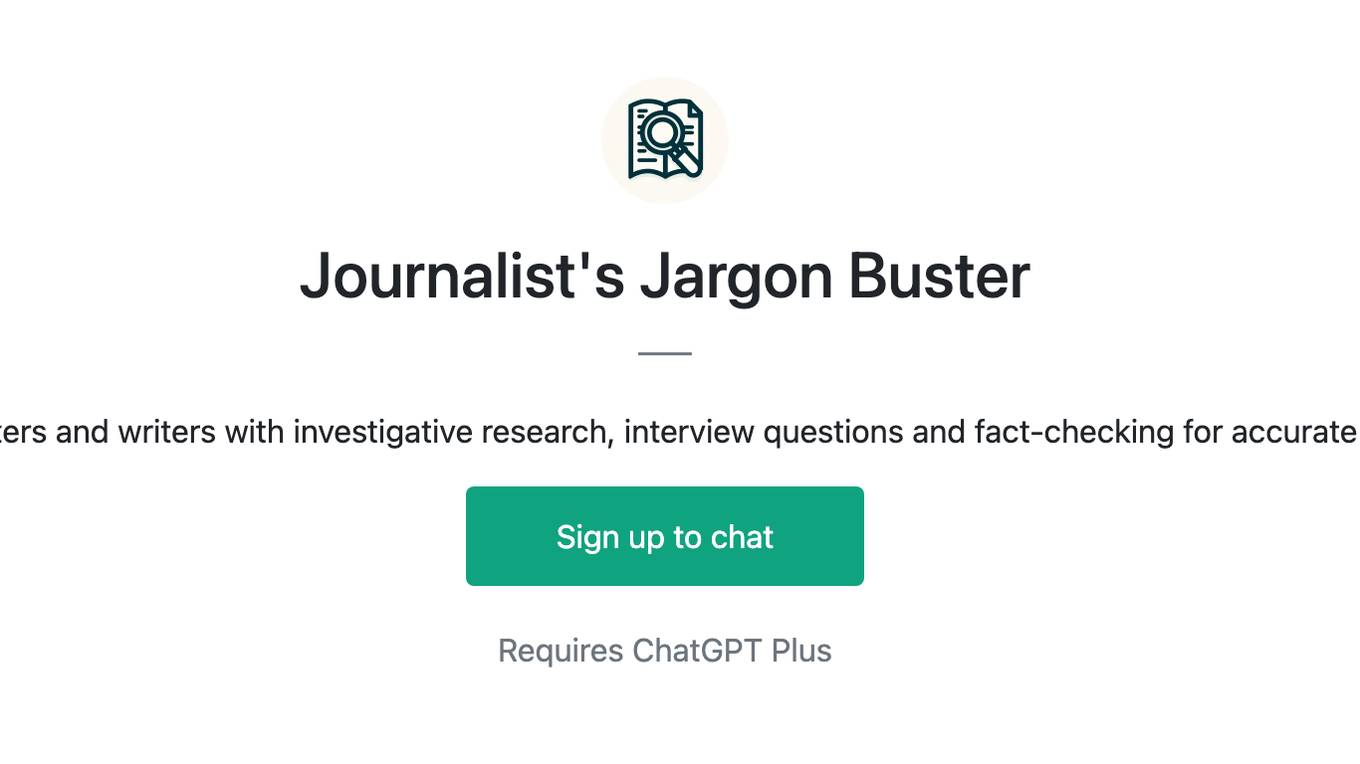
Journalist's Jargon Buster
Helps reporters and writers with investigative research, interview questions and fact-checking for accurate reporting.

Sommelier de dados
Opa! Cole o texto da sua reportagem ou trecho para que eu possa analisá-la com base em manuais de uso de dados em textos jornalísticos.
